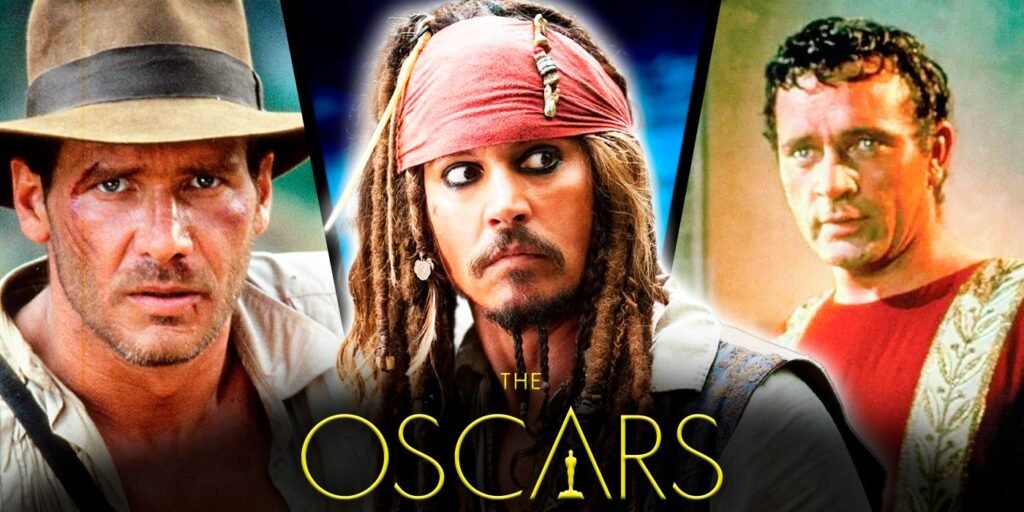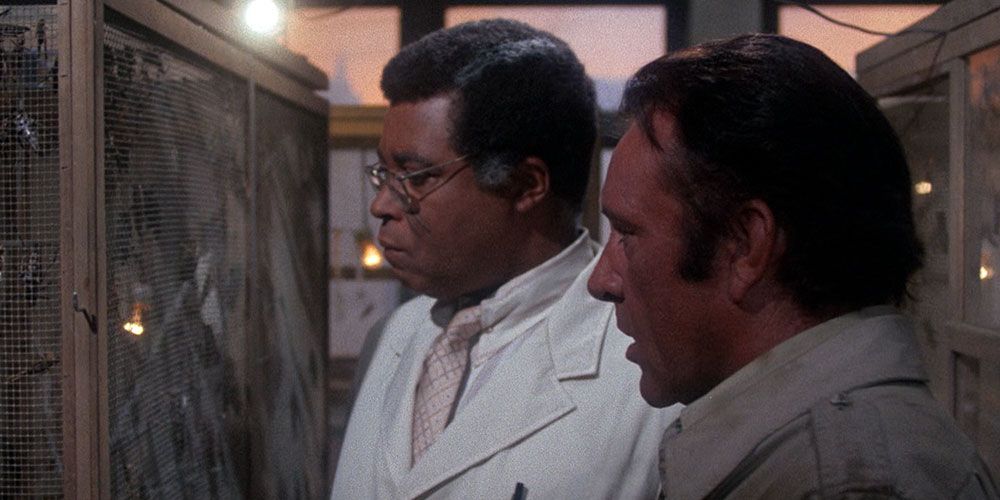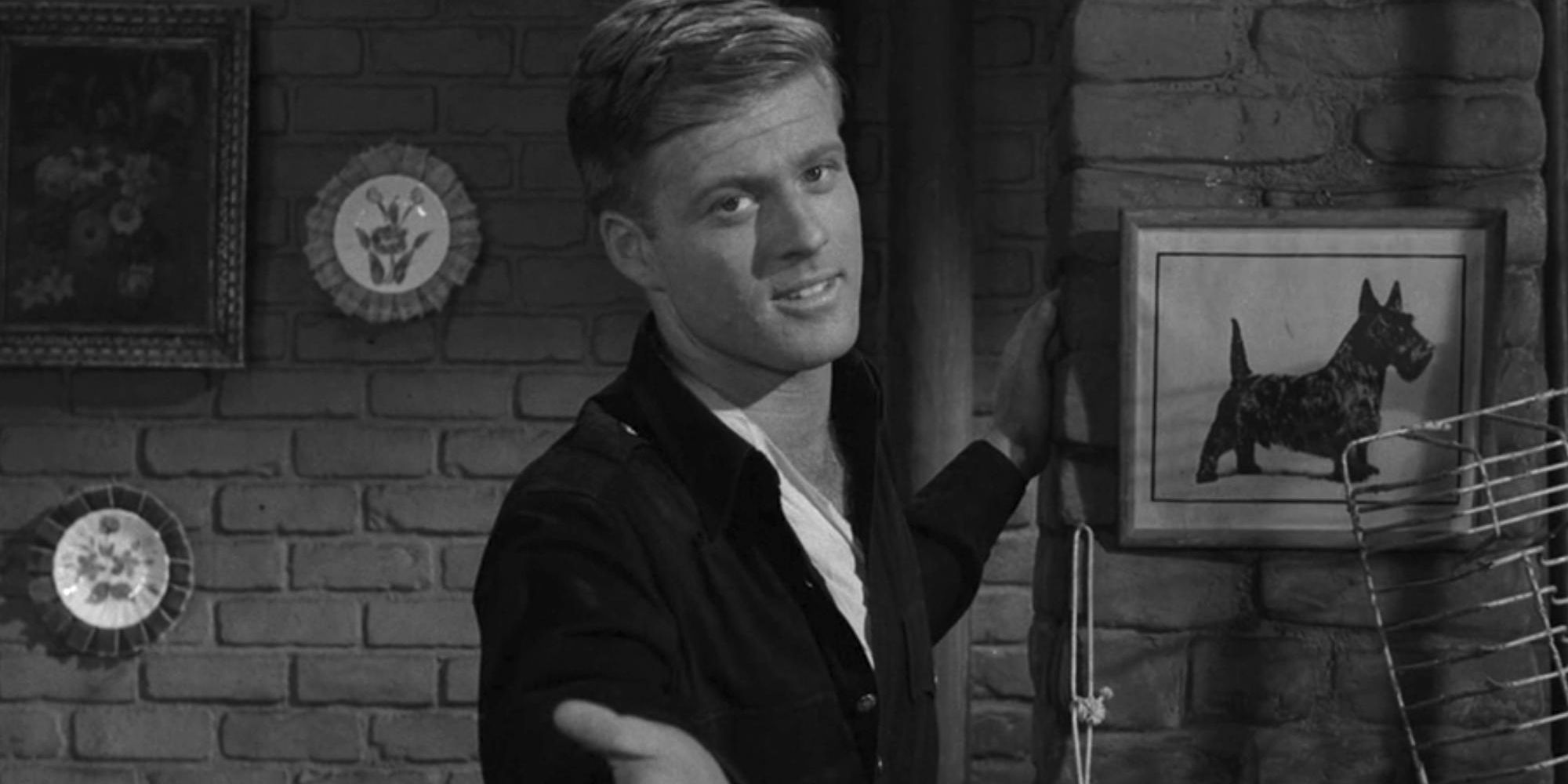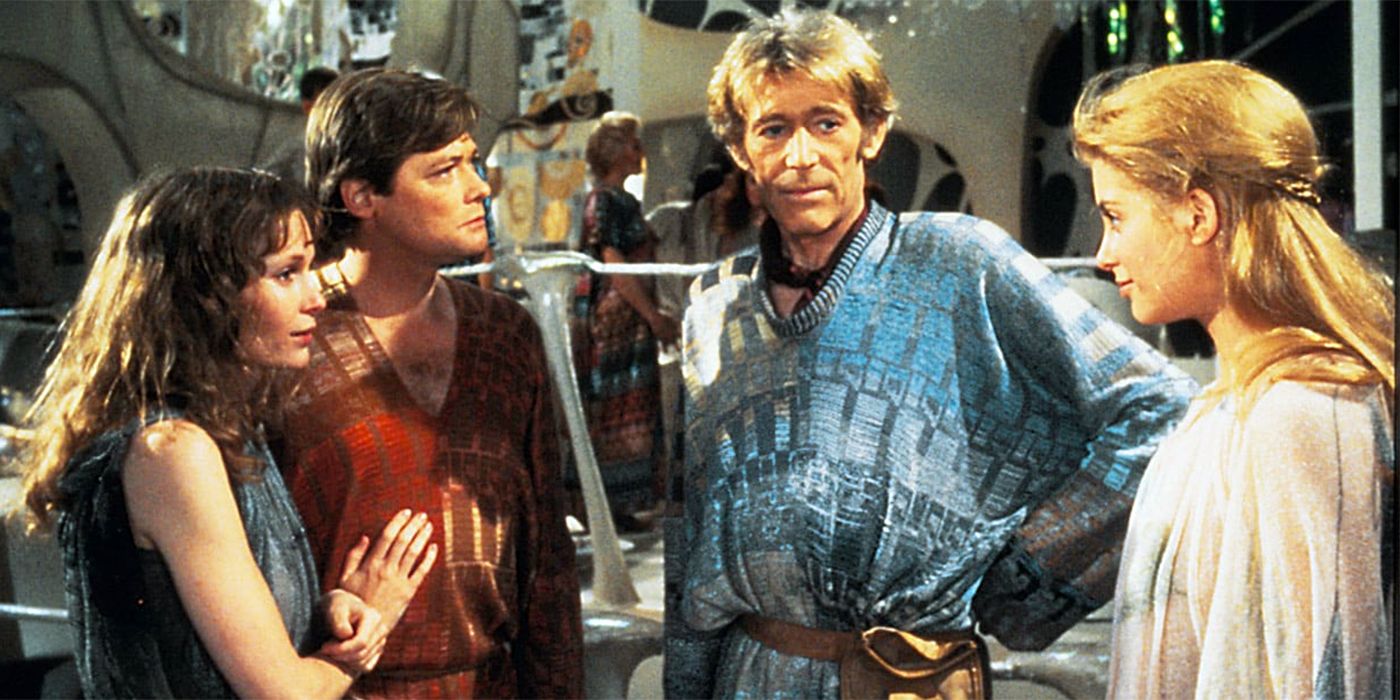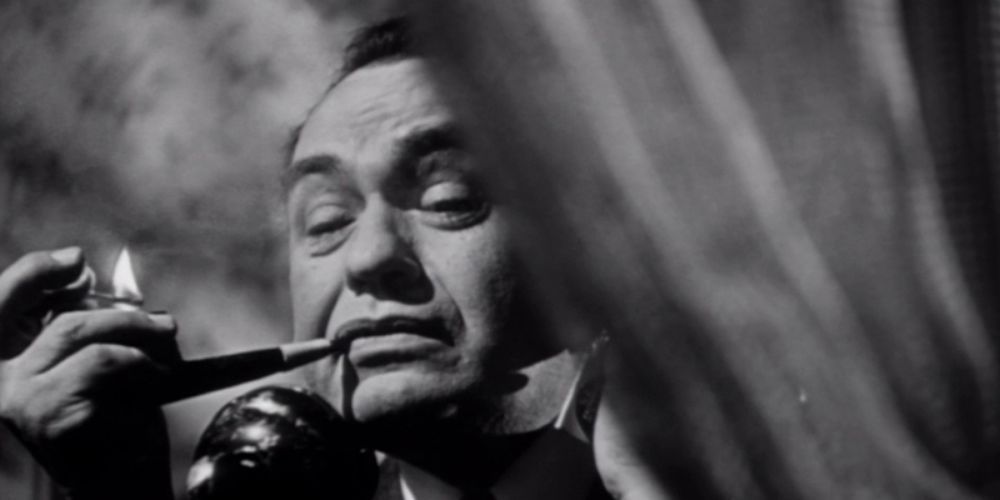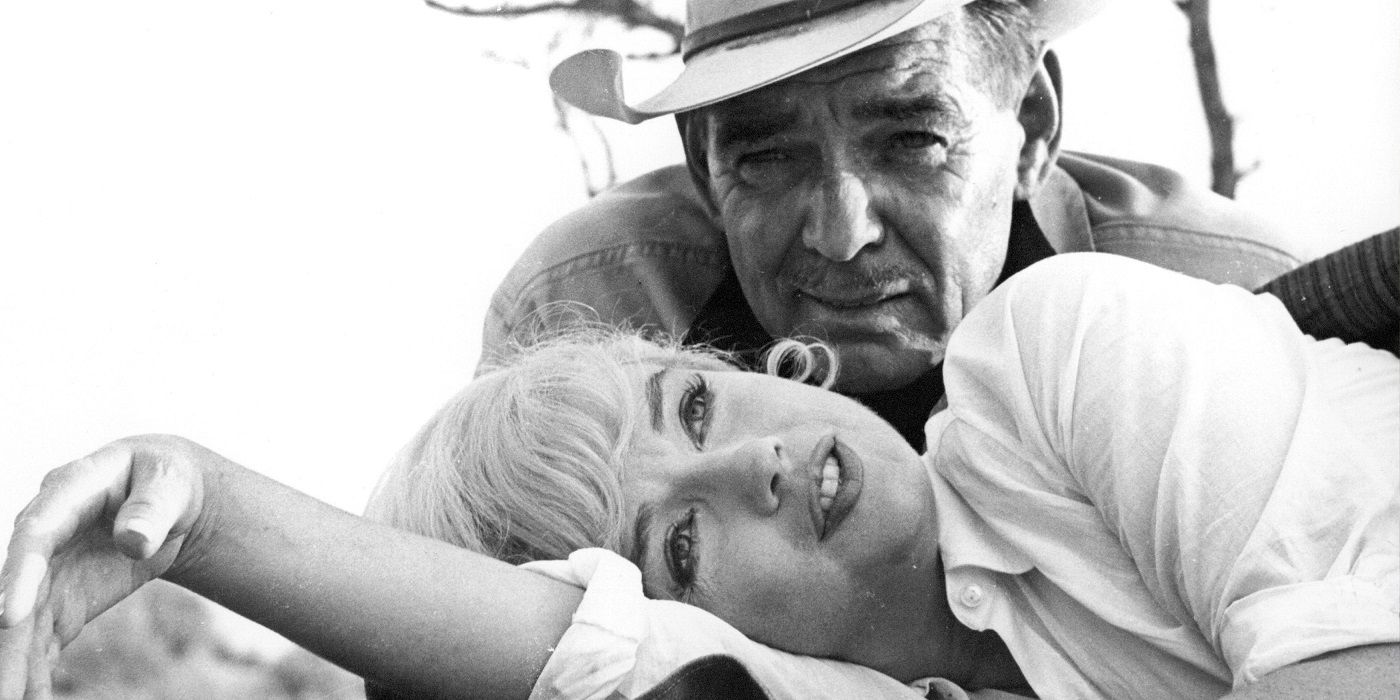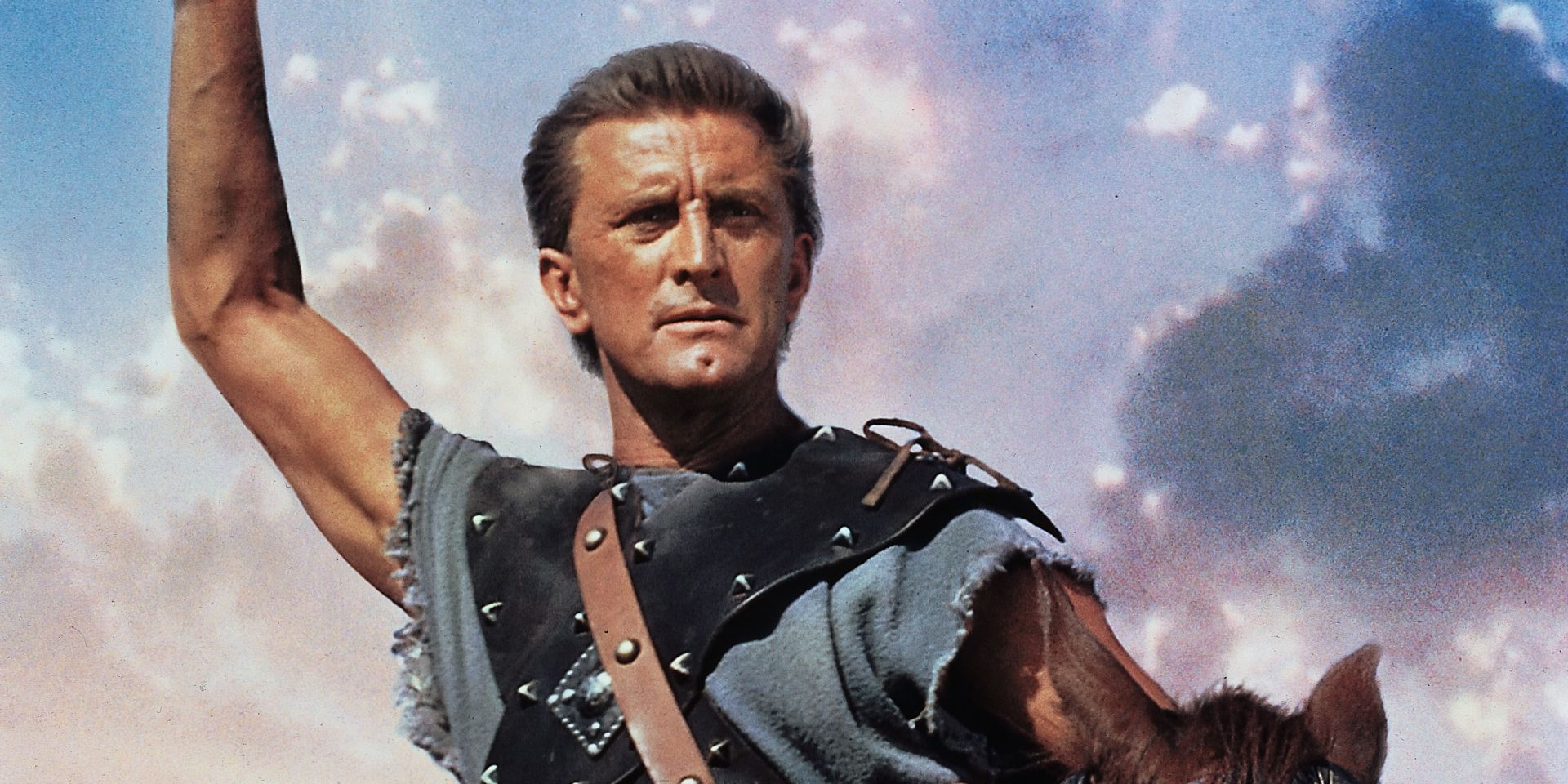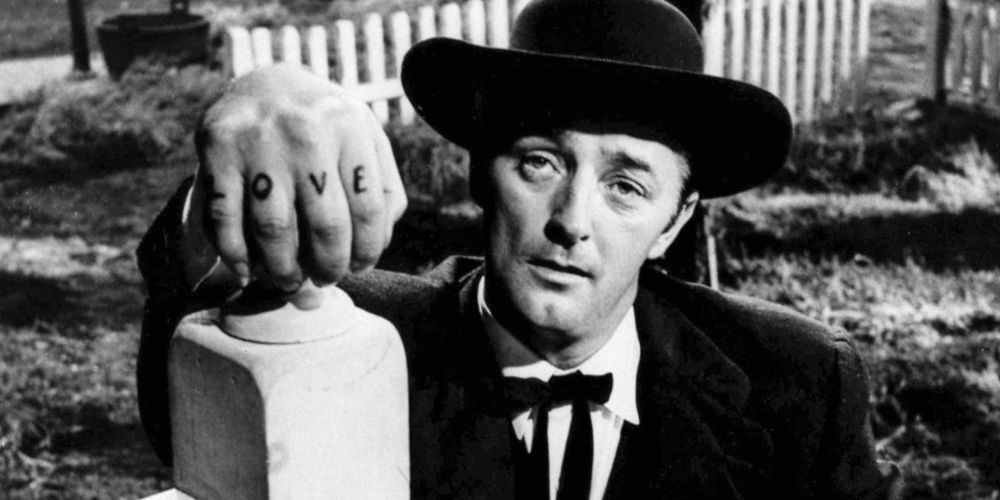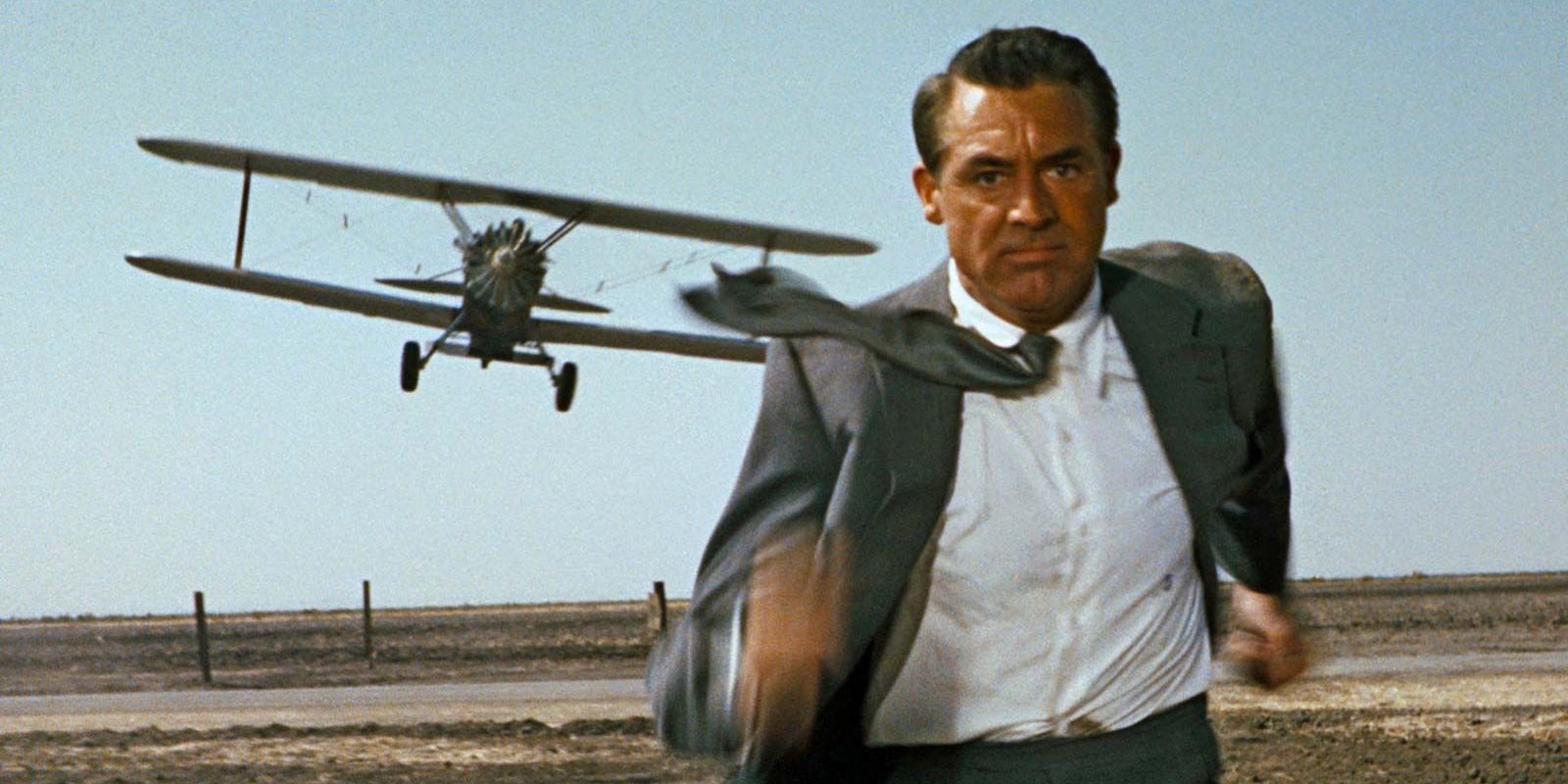One would think the path to winning an Academy Award is a straightforward process for an actor. Someone gives an all-time great performance, and, as a result, they receive the industry’s highest honor for an actor. In reality, though, claiming victory at the Oscars is not this simple. Unfortunately, winning an Oscar is a political endeavor, a competition to see who can put together the best campaign.
Another contributing factor to the unpredictable nature of the Academy Awards is that, historically, they seem to choose the incorrect winners more often than not. It is difficult to fathom how Art Carney defeated Al Pacino, Jack Nicholson, and Dustin Hoffman at the 47th Academy Awards or how Rex Harrison beat Richard Burton, Peter O’Toole, and Peter Sellers at the 37th Academy Awards. What remains more inconceivable is how some of Hollywood’s greatest stars, such as Cary Grant, Johnny Depp, and Robert Redford, never managed to take home an Academy Award for acting.
10 Harrison Ford Is One Of Cinema’s Greatest Blockbuster Stars
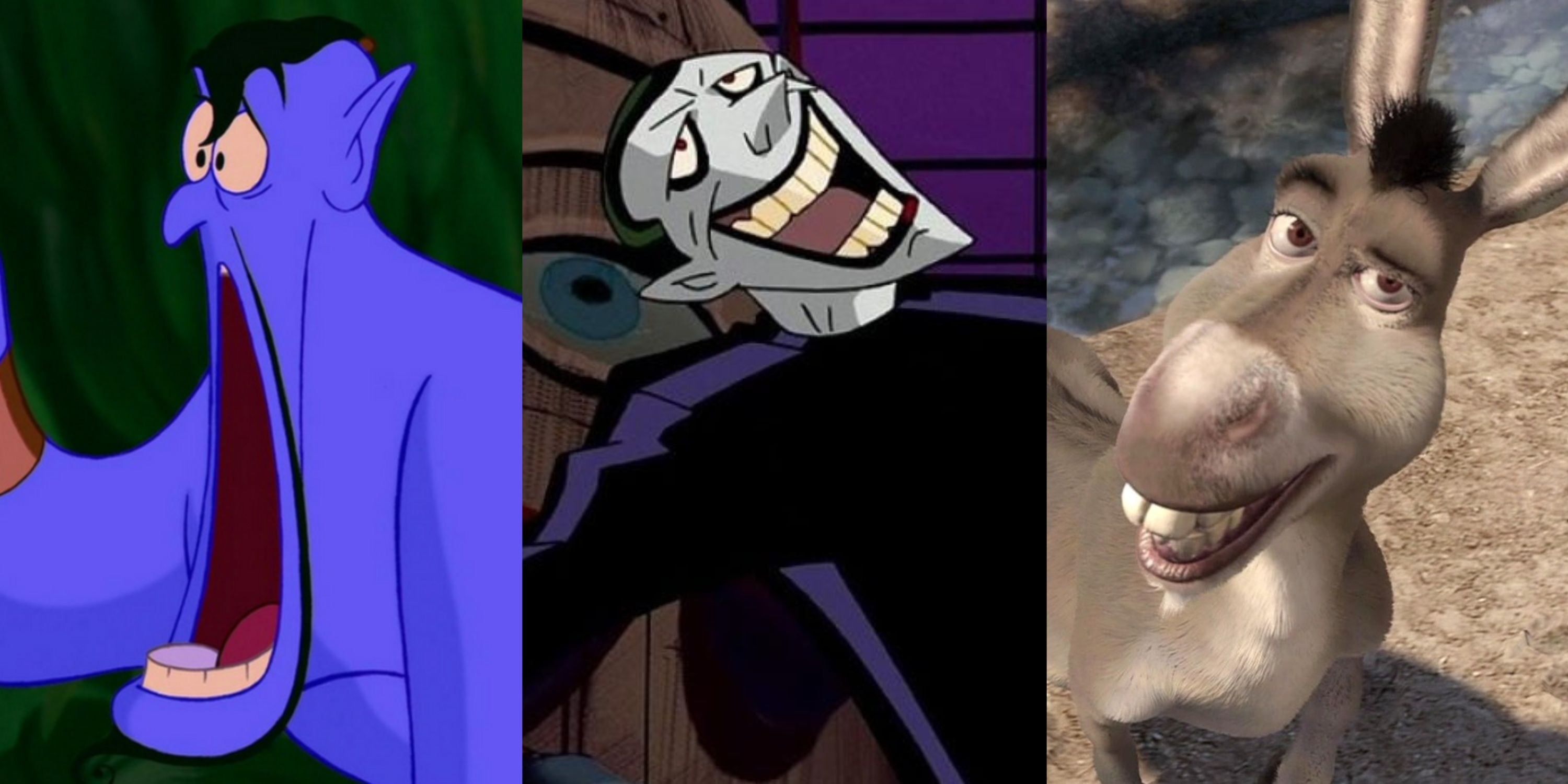
10 Greatest Voice Acting Performances In Animated Movies
From Robin Williams’ Genie to Mark Hamill’s Joker, animation is full of outstanding performances that never seem to get their due.
One of the highest-grossing movie stars in history, Harrison Ford is an icon of blockbuster filmmaking. Ford first gained recognition in the 1970s through supporting roles in films such as American Graffiti, The Conversation, and Apocalypse Now. In 1977, Ford skyrocketed to superstardom following his performance as Han Solo in Star Wars, a film that went on to become the highest-grossing movie of all time. Ford would reprise his role as Han Solo in three subsequent films. Other characters Ford helped to popularize include Indiana Jones, whom Ford portrayed on five occasions, Rick Deckard, whom Ford played twice, and Jack Ryan, whom Ford also portrayed twice.
Believe it or not, throughout his remarkable nearly 60-year career, Ford only managed to earn one Academy Award nomination for his performance in Witness. While Ford could have easily received nominations for Star Wars, Raiders of the Lost Ark, and Blade Runner, it is his Oscar snub for The Fugitive, his greatest screen performance, that is his most egregious Oscar omission. The Fugitive garnered seven Academy Award nominations, but somehow none for Ford.
9 Richard Burton Was Supposed To Be The Next Laurence Olivier
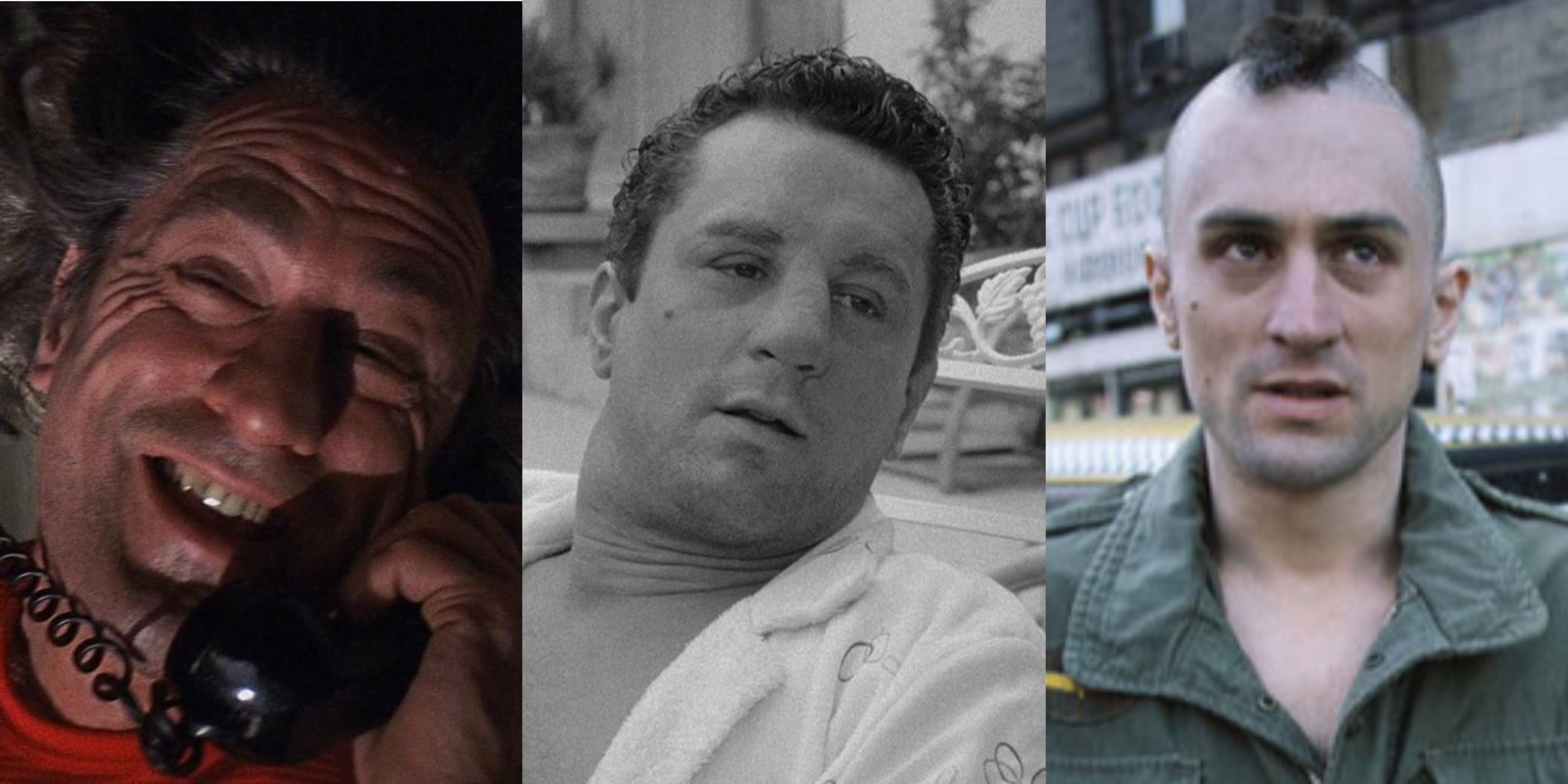
10 Outrageous Robert De Niro Method Acting Stories
Robert De Niro’s preparations for films such as Cape Fear, Raging Bull, and Taxi Driver demonstrate the dedication of method actors.
A master of stage and screen acting, Laurence Olivier is universally considered one of the greatest British actors of the twentieth century. Throughout the 1950s, Richard Burton began rising in the ranks of the world’s most talented actors, dazzling audiences with his film and theater performances. Burton’s immense acting prowess led theater critic Kenneth Tynan to hail Burton as the natural successor to Olivier.
Between 1953 and 1978, Burton amassed seven Academy Award nominations, six for Best Actor in a Leading Role and one for Best Actor in a Supporting Role. Despite the seven nominations, Burton never won, making him the second most nominated actor, behind Peter O’Toole and Glenn Close, to have emerged victorious at the Oscars. Burton’s unforgettable performance in Who’s Afraid of Virginia Woolf? should have undoubtedly resulted in an Academy Award win. Sadly, Burton’s turbulent personal life often overshadowed his acting accomplishments. His excessive drinking and his tumultuous relationship with Elizabeth Taylor led many to declare his career a disappointment, especially when compared to that of Olivier. Burton’s self-destructive lifestyle culminated in an untimely death at the age of 58.
8 Robert Redford Has An Oscar For Best Director, But No Academy Awards For Acting
A sex symbol and box office titan of the 1970s, Robert Redford is one of the most significant stars of the New Hollywood movement. Early in his career, Redford split his time between acting on the stage and appearing in minor roles on television. Some highlights from this time in his career include a leading role in the Broadway play Barefoot in the Park and a starring role in an episode of The Twilight Zone. Following performances in The Chase, the film adaptation of Barefoot in the Park, and Butch Cassidy and the Sundance Kid, Redford became one of Hollywood’s most in-demand stars.
During the 1970s and 1980s, Redford starred in both box office triumphs and critically acclaimed works. Some notable films from this period include Jeremiah Johnson, The Sting, The Way We Were, All the President’s Men, The Natural, and Out of Africa. For unknown reasons, the Academy Awards seemed to always ignore Redford, who only earned one acting Oscar nomination for The Sting. Oddly enough, Redford won his first and only Oscar for directing Ordinary People, beating out Martin Scorsese, who directed Raging Bull, and David Lynch, who directed The Elephant Man. Fourteen years after his Oscar win for Ordinary People, Redford received two more Academy Award nominations for Best Picture and Best Director for Quiz Show.
7 Johnny Depp Seamlessly Transitioned From Independent Artist To Blockbuster Star
At this point, Johnny Depp has had four very distinct eras within his career. The 1980s saw Depp appear as a supporting actor in films such as A Nightmare on Elm Street and Platoon, which occurred before his breakout role on the television show 21 Jump Street. After 21 Jump Street made him a star, Depp became one of the most integral actors of the 1990s independent cinema resurgence, appearing in movies such as Edward Scissorhands, What’s Eating Gilbert Grape, Ed Wood, Dead Man, and Donnie Brasco. The dawn of the twenty-first century saw Depp seamlessly transition into a box office tour de force through films like the Pirates of the Caribbean franchise, Charlie and the Chocolate Factory, Sweeny Todd: The Demon Barber of Fleet Street, and Public Enemies. Since the start of the 2010s, Depp’s career has been marred by repeated box office flops and personal controversies.
While Depp’s career is full of memorable performances, he has only received three Oscar nominations for Pirates of the Caribbean: Curse of the Black Pearl, Finding Neverland, and Sweeny Todd: The Demon Barber of Fleet Street. Depp, who has always been known for his rebellious sentiments, told Vanity Fair in 2015 that he hopes he never wins an Academy Award. As to why, Depp concerns himself more with a dedication to performance rather than turning his craft into a competition.
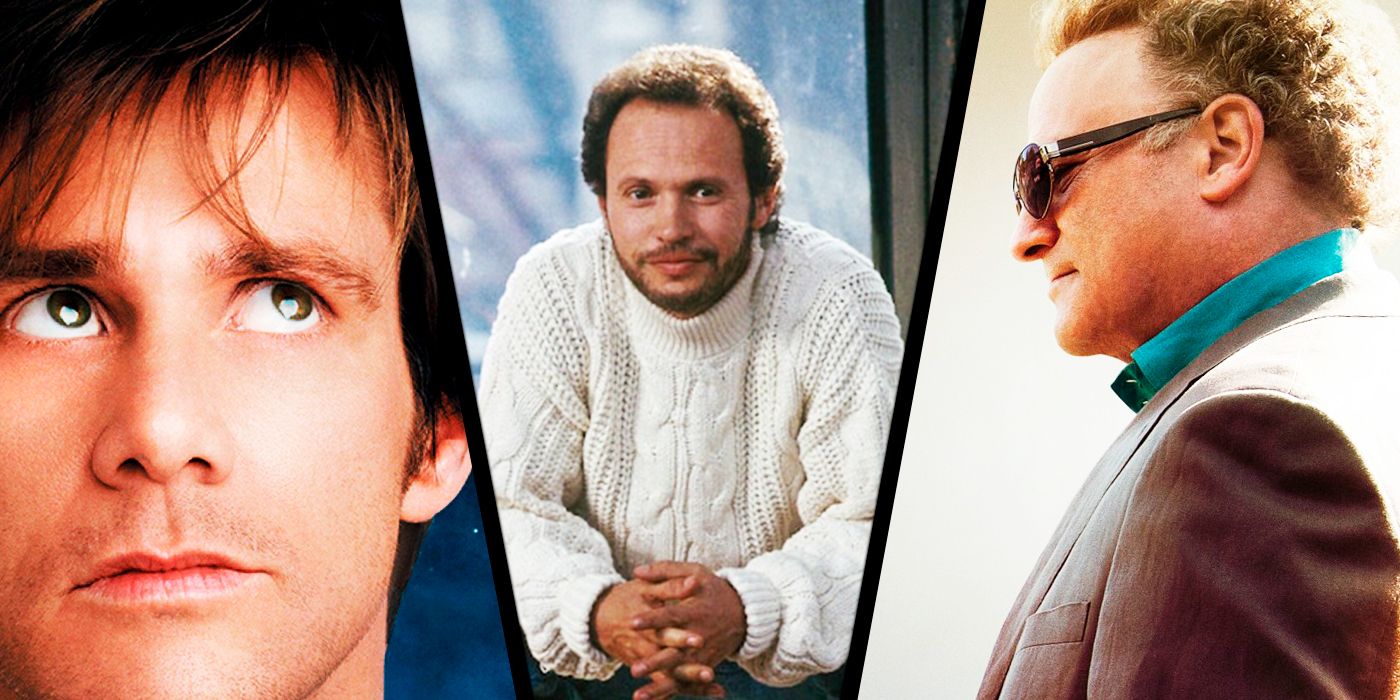
10 Greatest Movie Acting Performances By Stand-Up Comedians
While comedians can be put in a creative box, there have been plenty of stand-up comedians who have given stunning movie performances.
Peter O’Toole, like many British actors of the twentieth century, first made a name for himself on the stage as a highly accomplished Shakespearean actor during the 1950s. In only his fourth film role, O’Toole solidified his cinematic legacy with his signature performance as T. E. Lawrence in David Lean’s Lawrence of Arabia. The film earned O’Toole his first Academy Award nomination, however, he lost the Oscar to Gregory Peck, who himself delivered a seminal performance in To Kill a Mockingbird.
This trend of losing Oscars continued throughout O’Toole’s career, as he racked up eight Academy Award nominations for Best Actor, losing every single time. O’Toole remains tied with Glenn Close for the most acting Oscar nominations without a win. An actor with great range, O’Toole received Oscar nominations for films across a wide array of genres including Shakespeare adaptations, period films, romance movies, and comedies. Like his contemporary Richard Burton, O’Toole’s legendary drinking stories often result in people overlooking the brilliance of his acting career.
5 The Academy Awards Showed No Love To Edward G. Robinson
After a career on Broadway and a brief run during cinema’s silent era, Edward G. Robinson rose to prominence following his menacing performance as “Rico” Bandello in the pre-Code gangster classic Little Caesar. One of the most versatile actors of his generation, Robinson excelled in many genres but remains best remembered for his gangster films of the 1930s and his noirs of the 1940s. In addition to Little Caesar, some of Robinson’s most beloved films include Confessions of a Nazi Spy, Double Indemnity, The Woman in the Window, Scarlet Street, and Key Largo.
Robinson’s career is full of countless landmark performances that should have easily resulted in at least half a dozen Oscar nominations. Instead, Robinson concluded his career without a single Academy Award nomination, a true indignity for one of cinema’s most esteemed actors. While the Oscars may not have recognized the brilliance of Robinson’s work, other organizations did. Robinson won Best Actor at the Cannes Film Festival for his role in House of Strangers and won Best Actor from the National Board of Review for his performance in Tales of Manhattan. In 1999, the American Film Institute voted Robinson the 24th greatest male star of Hollywood’s Golden Era.
4 Montgomery Clift Helped Usher In Method Acting In Hollywood
In the 1950s, Marlon Brando, James Dean, and Montgomery Clift helped usher in a new era of acting in Hollywood. Each a product of the Actors Studio, Brando, Dean, and Clift were among the original method actors in Hollywood. These three men not only transformed screen acting, but they also revolutionized masculine representation in cinema through their emotionally tortured and vulnerable characters. Brando would go on to win two Academy Awards, Dean earned two posthumous Oscar nominations after his death at the age of 24, and Clift received four Academy Award nominations but failed to win any of them.
Despite only 19 acting credits, Clift appeared in some of the greatest films of the twentieth century, such as Red River, The Heiress, A Place in the Sun, I Confess, From Here to Eternity, and The Misfits. In 1956, a severe car crash left Clift with extensive facial injuries that required plastic surgery that notably altered his physical appearance. The accident led to Clift increasing his alcohol and painkiller intake. By 1966, Clift’s health had drastically deteriorated. At the age of 45, Clift suffered a fatal heart attack that cut short one of the most influential careers in Hollywood history.
3 Kirk Douglas Brought An Unmatched Intensity To Hollywood Acting
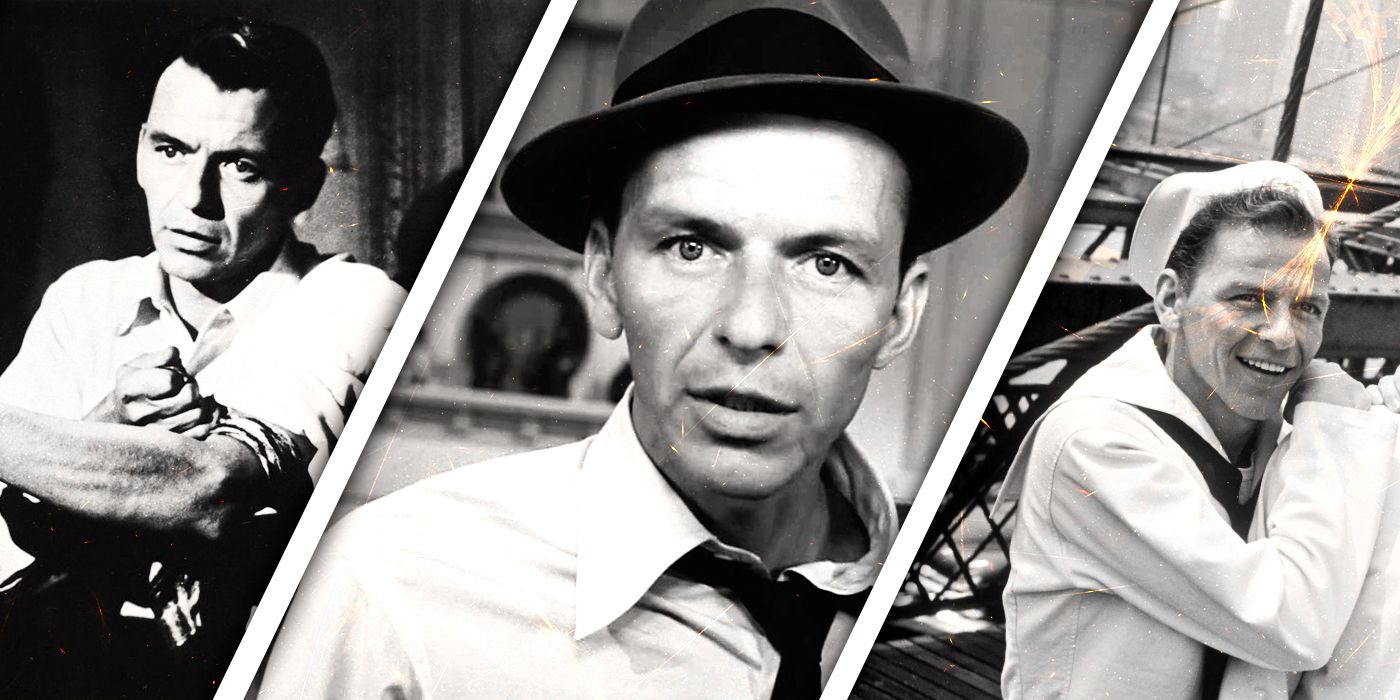
10 Greatest Frank Sinatra Movie Performances
While Frank Sinatra is known mostly for his music, the entertainer also has a stunning filmography filled with movies everyone can enjoy.
In a career that lasted over six decades, Kirk Douglas brought an unmatched intensity to his acting roles that spanned the full spectrum of character types. Whether he played a lovable hero, a complex anti-hero, or a despicable villain, Douglas was always the personification of the quintessential Hollywood tough guy. Douglas gave countless award-worthy performances in films such as Out of the Past, Ace in the Hole, Detective Story, Paths of Glory, Spartacus, and Lonely Are the Brave. Ironically, Douglas received a grand total of zero Oscar nominations for these masterful works.
While Douglas never won an Academy Award, he did earn three nominations for the movies Champion, The Bad and the Beautiful, and Lust for Life. Outside of acting, Douglas played a pivotal role in helping to break the Hollywood blacklisting of writers with alleged communist ties. Both Douglas and Otto Preminger fought for famed screenwriter Dalton Trumbo to receive credit for his work on Spartacus and Exodus. The American Film Institute placed Douglas 17th on their list of 100 Years…100 Stars.
2 Robert Mitchum Was The Soul Of Film Noir
Known for his laconic voice and understated coolness, Robert Mitchum starred in over 100 films between 1943 and 1997. Throughout his career, Mitchum was at his best in the Western, war, and film noir genres. Film critic Roger Ebert called Mitchum his favorite movie star and the soul of film noir. Crossfire, Out of the Past, Angel Face, and The Night of the Hunter are just a few of Mitchum’s many incredible noir roles.
After appearing in over two dozen minor roles between 1943 and 1944, Mitchum got his big break in 1945 with a supporting role in the war film The Story of G.I. Joe. Mitchum’s performance resulted in the only Academy Award nomination of his career. Considering the retrospective adulation Mitchum receives from critics and scholars, it is almost impossible to comprehend how Mitchum never won an Oscar. Critic David Thomson named Mitchum one of the three most important actors in film history, along with Cary Grant and Barbara Stanwyck. Regarding Mitchum, Thomson wrote, “Since the war, no American actor has made more first-class films, in so many different moods.” The American Film Institute listed Mitchum as the 23rd greatest male movie star of Hollywood’s Golden Era.
1 Cary Grant Is The Greatest Actor To Have Never Won An Academy Award
One of classic Hollywood’s definitive leading men, Cary Grant is the greatest actor to have never won an Academy Award. Overcoming a traumatic childhood, Grant achieved stardom in the late 1930s due to his performances in screwball comedies. Throughout the remainder of his career, Grant proved himself to be equally adept at both comedy and drama. Grant’s handsome good looks and charming screen persona made him an ideal choice as a romantic lead, while his sophistication and wit also made him an ideal choice as the star of several Alfred Hitchcock thrillers.
Despite possessing an almost unprecedented body of work, Grant only earned two Oscar nominations in his career for his leading roles in Penny Serenade and None But the Lonely Heart. The American Film Institute ranked Grant the second greatest male movie star of Hollywood’s Golden Era. It defies all logic and reason how someone of Grant’s stature went through his entire career with only two Oscar nominations and no wins. Howard Hawks called Grant “the best that there is,” while Hitchcock referred to Grant as “the only actor I loved in my whole life.”

